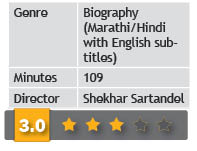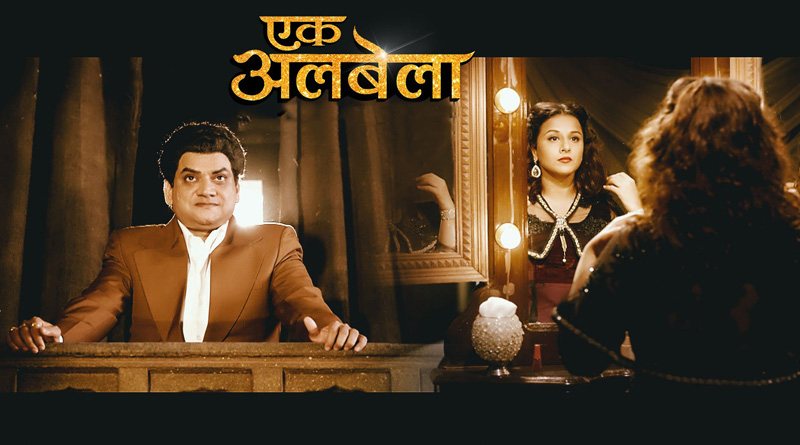Biopics are a gateway to revisiting your childhood heroes.
Ramchandra Chitalkar (C. Ramchandra the music director) was Bhagwan (Dada) Abhaji Palav’s alter ego. The two sons of the Maharashtrian soil combined harmoniously to give the Hindi film industry, in 1951, arguably its greatest musical sleeper hit.
Ekk Albela opens in 1930 before the diminutive actor had progressed to talkies. Writer/ director Shekhar Sartandel depicts the pre-independent Hindu-Muslim conflicts and how the young Bhagwan would be a unifying factor. Bhagwan’s ingenious dance moves, which inspired— and were unabashedly borrowed by—Amitabh Bachchan and Mithun Chakravarty, were evident at Ganpati celebrations, where Bhagwan would be much in demand.
The Albela star comes across as impudent, whether dealing with his conniving financiers or luring Geeta Bali (Vidya Balan), who was already an emerging star by then, into signing Albela.
Santandel, thankfully, abstains from having Mangesh Desai trying to imitate the legend’s mannerisms; and that is largely why he succeeds in bringing out Bhagwan’s verve and intrepidity.
Ten years after Albela, Bhagwan made the aptly titled Shola Jo Bhadke. In 1966, he came up with the anagrammatical Labela. Sadly, neither could replicate Albela’s glory.
While Desai’s performance as Bhagwan is studied but none-too-subtle, Vidya Balan fails to come across as the effervescent Geeta Bali. Vidhyadhar Joshi as the wily and unrefined financier Chandubhai Mehta And though colour tends to rob the viewer of the period authenticity, the Shola Jo Bhadke song, played in its entirety, is the only time the colour in the film is justified. Go watch the film, if only for this song.
- Parsee Gym Retains Supremacy In 7th Late Manek Golvala T10 Cricket Cup - 13 April2024
- Parsee Gym Holds 9th All-Parsee TT Tourney - 6 April2024
- Parsee Gym Holds Gala Jamshedi Navroze Celebrations - 30 March2024
